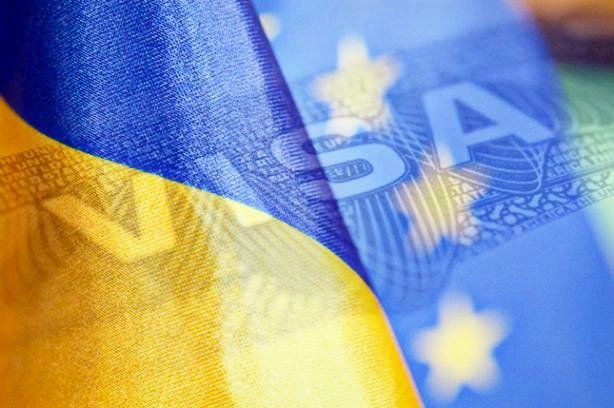The Parliamentary Assembly of the Council of Europe adopted by a large majority a decision aimed at lifting political sanctions against the Russian Federation, results of the vote on 11 October show, Yevropeiska Pravda reported.
Almost all the amendments proposed by the Ukrainian delegation were rejected. The resolution, drafted by future PACE President Michele Nicoletti, contains a norm specifying that PACE and the Committee of Ministers, the Council of Europe's decision-making body, should "harmonize rules for member states’ participation in both statutory bodies."
As Russia was stripped of its voting rights in PACE in 2014 following its occupation in Crimea, but was not sanctioned by the Committee of Ministers, this norm basically means that PACE would be banned from prolonging sanctions against Russia, without the consent of the member states, and that the adoption of any sanctions against Russia in PACE is now under question.
Given that sanctions should be renewed every year, restrictions could be lifted as early in January. The specific mechanism for implementing the new provisions can be developed by the PACE governing bodies in the coming months.
According to Serhiy Sydorenko writing for Yevropeiska Pravda, voting for the resolution happened against the backdrop of Russia's decision this summer that they will reduce their membership fees to PACE by one third. Acting Head of the Committee of Ministers and Foreign Minister of the Czech Republic Lubomír Zaorálek declared that Russia had jeopardized the proper functioning of PACE. He was supported by PACE Secretary-General Thorbjørn Jagland, who during debates in PACE publicly admitted that non-payments would mean Russia's withdrawal from the Council of Europe.
According to the outlet's sources, the Secretary-General told PACE delegates that the Council of Europe faces a difficult decision: to uphold its values or preserve the unity of the organization, as the Russian delegation would withdraw from the Assembly if sanctions were not lifted, and consequently, would stop paying membership fees, would be excluded, and the Council of Europe would stop existing in its present form.
The outlet writes that in fact, Russia had cut their payments to PACE by two thirds, not the one third that was announced. Russia's debt to PACE is a bit more than EUR 20 mn, which is 4-5% of PACE's budget. Altogether, Russia's total membership fee makes up 7% of PACE's budget. This is a considerable sum and would mean that PACE would need to cut down on some planned programs. Jagland announced that having a Council of Europe member which doesn't pay its membership fees is unacceptable for the organization.
Officially, Jagland insisted at a meeting with the EPP group that he is seeking Russia's return to PACE because Russia needs to vote for the senior officials of the Council of Europe, the Secretary-General of the organization, the Commissioner for Human Rights and also the judges of the European Court of Human Rights. He argued that if Russia does not renew its presence, the new Commissioner for Human Rights will be chosen without the participation of Russian delegates, and in result, his authority will not be recognized in Russia. Therefore, the human rights protection of 130 million Russian citizens would suffer.
Altogether, it appears that this resolution is a step forward for those seeking "forgiveness and reconciliation" with Russia - an idea which is gaining popularity as the Russian-directed conflict in eastern Ukraine and occupation of Crimea have no end in sight.
However, whether political sanctions will really be lifted from the Russian delegation to PACE in January 2018 is still unclear. According to Ukraine's representative to the Council of Europe Dmytro Kuleba, the first attempts to create a joint working commission of PACE and the Committee of Ministers with the goal to, de facto, search for ways to reform the Council of Europe to allow for Russia's return, was unsuccessful.
On 10 April 2014, PACE voted to suspend the Russian delegation’s voting rights; these sanctions were prolonged till January 2018. On 4 June 2014, the Russian parliamentary delegation suspended its cooperation with PACE, since its delegates were deprived of voting rights in the aftermath of the Ukrainian conflict. In January 2016, the Russian parliament decided not to submit the credentials of its parliamentary delegation for ratification by PACE.
Ukraine's delegation warns that if Russia returns, Ukraine will leave, and maintains that the participation of Russia in PACE is possible when Russia implements PACE resolutions calling on Russia to end its aggression in Ukraine. Namely, they are resolutions 1990, 2034, and 2063. Russia had not implemented a single call in the resolutions. In 2016, PACE adopted resolution 2112 calling on Russia to release all captured Ukrainian prisoners, as well as 2133 and 2132 which clearly state that Russian troops have to be withdrawn from the territory of Ukraine, that the war in Ukraine is not a “Ukrainian conflict” but “Russian aggression,” and elections in Donbas are not possible in the current situation and declare that Russia bears full responsibility for the occupied territories and rules out the return of the Russian delegation to PACE before the Minsk agreements are implemented and territorial integrity of Ukraine is restored.

Related:
- Russia and PACE resolutions: a checklist (ANIMATION)
- How the head of PACE became Putin’s lackey
- PACE calls on Russia to release Sentsov and other Kremlin hostages
- Historic PACE resolutions condemn Russian aggression, rule out elections in occupied Donbas
- Russia's participation in PACE meeting protested in Madrid





